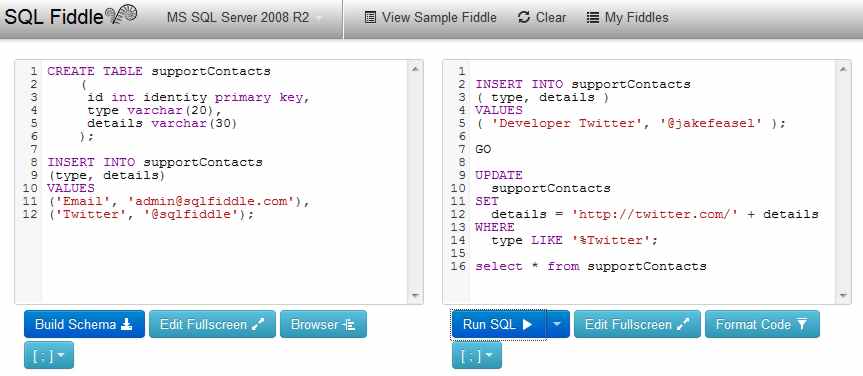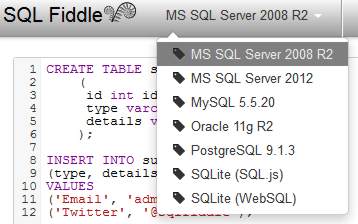| SQL Fiddle |
| Written by Nikos Vaggalis | |||
| Wednesday, 20 June 2012 | |||
|
SQL Fiddle is a new tool that allows you to experiment with SQL queries without even having a dbms. Following the footsteps of the online web editor jsFiddle, SQL Fiddle is a web based tool where you create a database by utilizing your schema and choosing an underlying engine amongst MySQL, PostgreSQL, MS SQL Server, Oracle, and SQLite; and then run queries against it.
(Click to enlarge)
As it is web-based, you don’t need to install a dbms, and it also has the advantage of allowing you to compare the syntax of a variety of SQL flavours (although all products follow the standards there are differences in the implementation as well as proprietary features) inherent in these diverse dbms. It enables you to engage with functionality that might exist in one but not in another, so serving as a "product shootout", as well as letting you look at how your query is going to be executed by observing the query execution plans it provides.
This also helps with optimizing and comparing queries. In addition, you can post a link to your fiddle to forums like Stackoverflow when looking for help. For example see: Get value with MAX(date) from two table More
To be informed about new articles on I Programmer, install the I Programmer Toolbar, subscribe to the RSS feed, follow us on, Twitter, Facebook, Google+ or Linkedin, or sign up for our weekly newsletter.
Comments
or email your comment to: comments@i-programmer.info
|
|||
| Last Updated ( Wednesday, 20 June 2012 ) |



